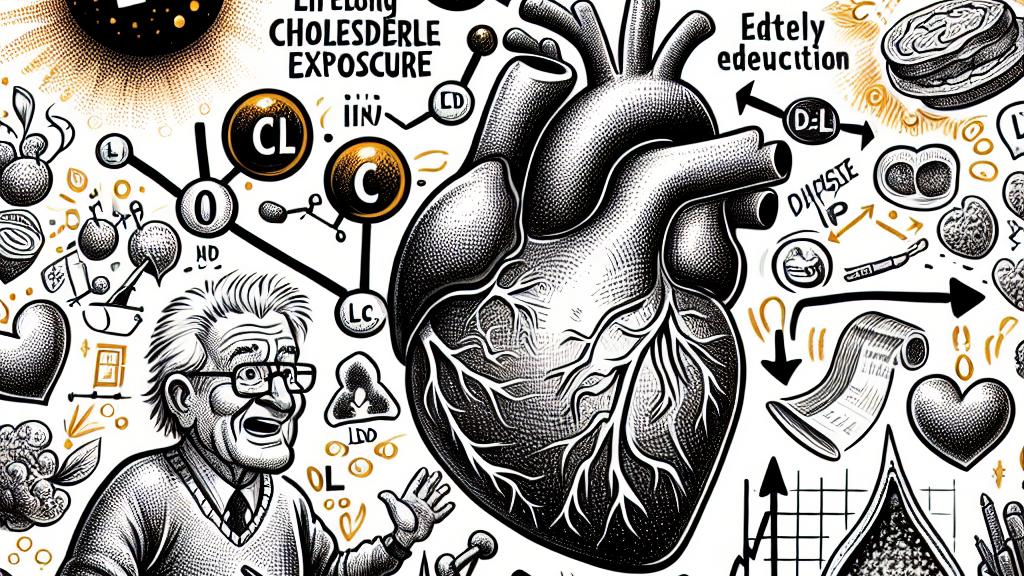Cholesterol's Secret Life: How Early Eating Shapes Heart Health
Overview
- High-cholesterol diets in early life increase future cardiovascular disease risk.
- Changes in macrophages due to dietary cholesterol influence atherosclerosis development.
- Instilling healthy eating habits in youth is crucial for lifelong heart health.

Cholesterol Exposure: A Lifelong Impact
Recent findings from a comprehensive study conducted in the UK indicate that dietary exposure to high cholesterol in early life leads to a dramatically increased risk of cardiovascular diseases later on. Research shows that intermittent high intake of low-density lipoprotein cholesterol (LDL-C), particularly during key developmental stages, is associated with accelerated atherosclerosis. This means that even short-term exposure to unhealthy diets can set a person on a path toward serious heart issues in adulthood. The compelling evidence emphasizes the urgent need for dietary education and intervention starting from a young age, laying the groundwork for healthier lifestyle choices that can combat heart risks.
The Critical Role of Macrophages in Atherosclerosis
Within the arterial walls, macrophages serve as crucial defenders against inflammation and disease; however, their role can shift dramatically based on dietary influences. The research reveals that early exposure to high cholesterol alters the number and function of these immune cells, pushing them to adopt a pro-inflammatory state that accelerates plaque formation within arteries. This alteration underscores the critical nature of understanding macrophage dynamics—where protective functions diminish in favor of promoting atherosclerosis in response to unhealthy diets. Exploring these mechanisms opens new avenues for targeted therapies focusing on macrophage regulation to prevent heart disease.
Empowering Youth with Nutritional Knowledge
The implications of this research are profound, highlighting the necessity of promoting healthy eating habits among children and adolescents to mitigate lifelong health risks. Studies, such as the Young Finns Study, emphasize the importance of balanced diets filled with whole grains, fruits, vegetables, and healthy fats, while avoiding processed foods rich in sugars and unhealthy fats. Schools, families, and community programs must collaborate to create environments that encourage nutritious choices. Thus, empowering the next generation with knowledge about diet's role in health can lead to significant reductions in the prevalence of cardiovascular diseases, ultimately fostering a healthier, heart-conscious society.

Loading...